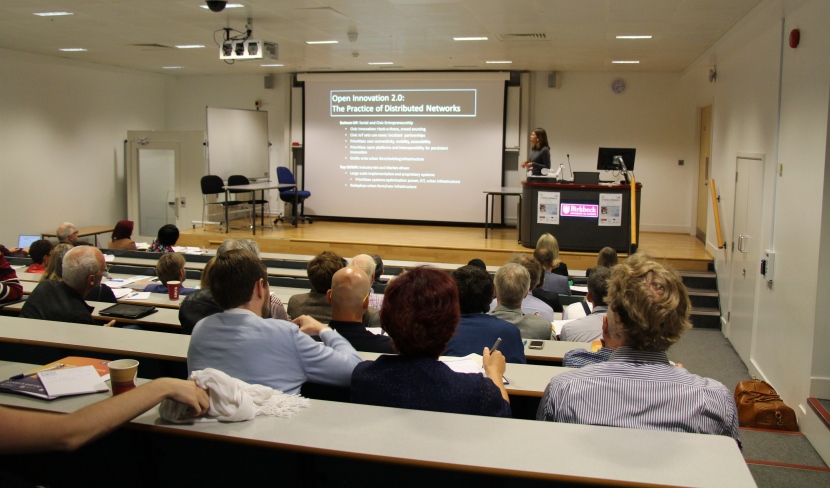Contributed by James Fisk, Business Engagement, Birkbeck.
The future is, and has always been, a contested space. A space in which hopes and fears of the present are projected and embellished, a destination we’re heading toward without having quite figured out all of the co-ordinates yet.
In a world changing as rapidly as ours, as new data streams emerge and we’re able to map the world in ways never thought possible before, attention must turn to the historic driver of change: innovation. Indeed, as odd as it sounds, innovation itself, or rather the mechanisms of innovation, must keep up with the times. The concept of Open Innovation, coined by Henry Chesbrough in his book ‘Open Innovation: The New Imperative for Creating and Profiting from Technology’, takes this proliferation of data as its core consideration and asks that innovators remain open to a newly communicative world of research, ideas and data. So, what will a world invested in Open Innovation look like and is it the right model for innovators today?
Uddevalla and Open Innovation
A glimpse of this possible future arrived at Birkbeck between 30th June and 2nd July 2016 as the topic of Open Innovation was explored at the 19th Uddevalla Symposium. The annual symposium, held in the UK for the first time, invited over 150 academics, business leaders and practitioners from 27 countries to Birkbeck’s Bloomsbury campus to discuss, share and ruminate on the topic of Open Innovation – as part of this year’s ‘Geography, Open Innovation, Diversity and Entrepreneurship’ theme. The three day symposium saw keynote lectures in the morning and parallel paper sessions in the afternoon bring together diverse strands of research, with the Bloomsbury campus alight with fervent discussion and debate.
A keynote lecture from Professor Jennifer Clark, Director of the Centre for Urban Innovation at Ivan Allen College in the US, gave a tantalising insight into how Open Innovation is changing the dynamics of both private and public sector innovation. Her lecture, ‘Smart Cities and Social Entrepreneurship: Remaking Markets and Manufacturing Open Innovation Spaces’ discussed how future cities that best utilise advances in technology, particularly advances in logistics and data, will benefit the public, private and third sectors mutually. However, such advances are reliant on open platforms for software and effective, equitable technology diffusion. An attendant commitment to Open Innovation from both the private and public sector would be necessary too; the task of re-engineering cities as sites of both innovation and sustainability is a challenging one with implications for all businesses, public services and third sector parties. Professors Clark’s timely lecture comes as the US city of Columbus has just been awarded $40 million dollars by the U.S Department of Transportation, to create innovative solutions for the future of urban mobility, undoubtedly a tentative first step toward the actualisation of Smart Cities.
Are we open or closed?
A utopian ‘internet of things’ however, is perhaps not as close as advances in technology suggest. The question of which model of innovation actually produces the greatest benefit is one fiercely debated and was the subject of the best paper award winner ‘The Paradox of Openness Revisited: Collaborative Innovation and Patenting by UK Innovators’. The paper, written by Professor Ashish Arora (Fuqua School of Business, Duke University), Professor Suma Athreye (Brunel Business School, Brunel University) and Dr. Can Huang, (Institute for Intellectual Property Management, School of Management, Zhejiang University), explores two seemingly contradictory strands of contemporary thought: should businesses innovate openly or protect themselves from ‘knowledge spill over’ and patent?
Their findings suggest that the answer is contingent on a number of factors, most notably the relative size of the business and whether it leads or follows in its chosen market. Their research edifies an ongoing debate among innovators, are we open or closed?
For more information about the 19th Uddevalla Symposium, you can visit their website.

